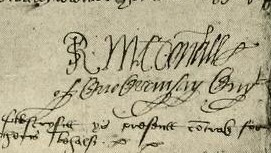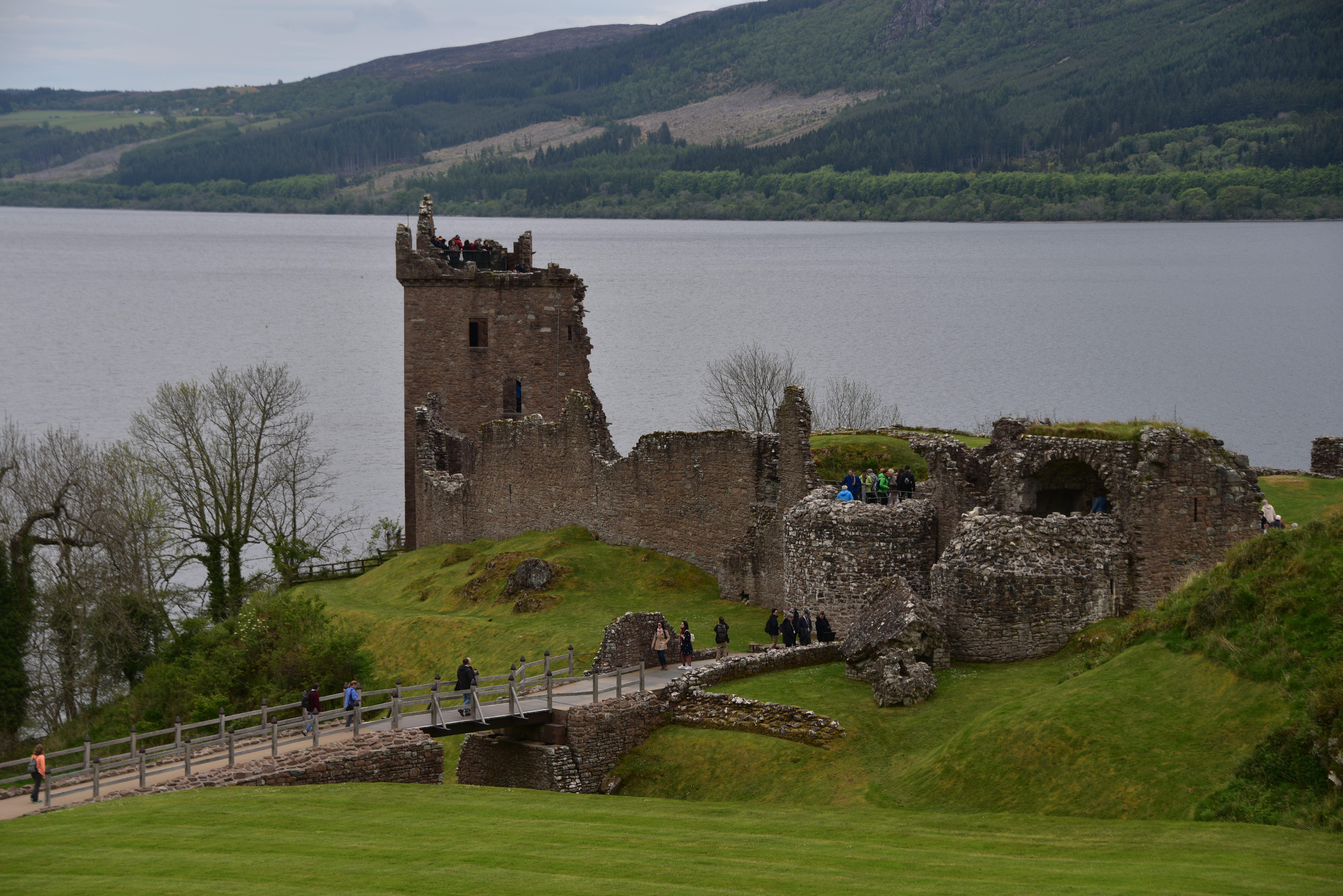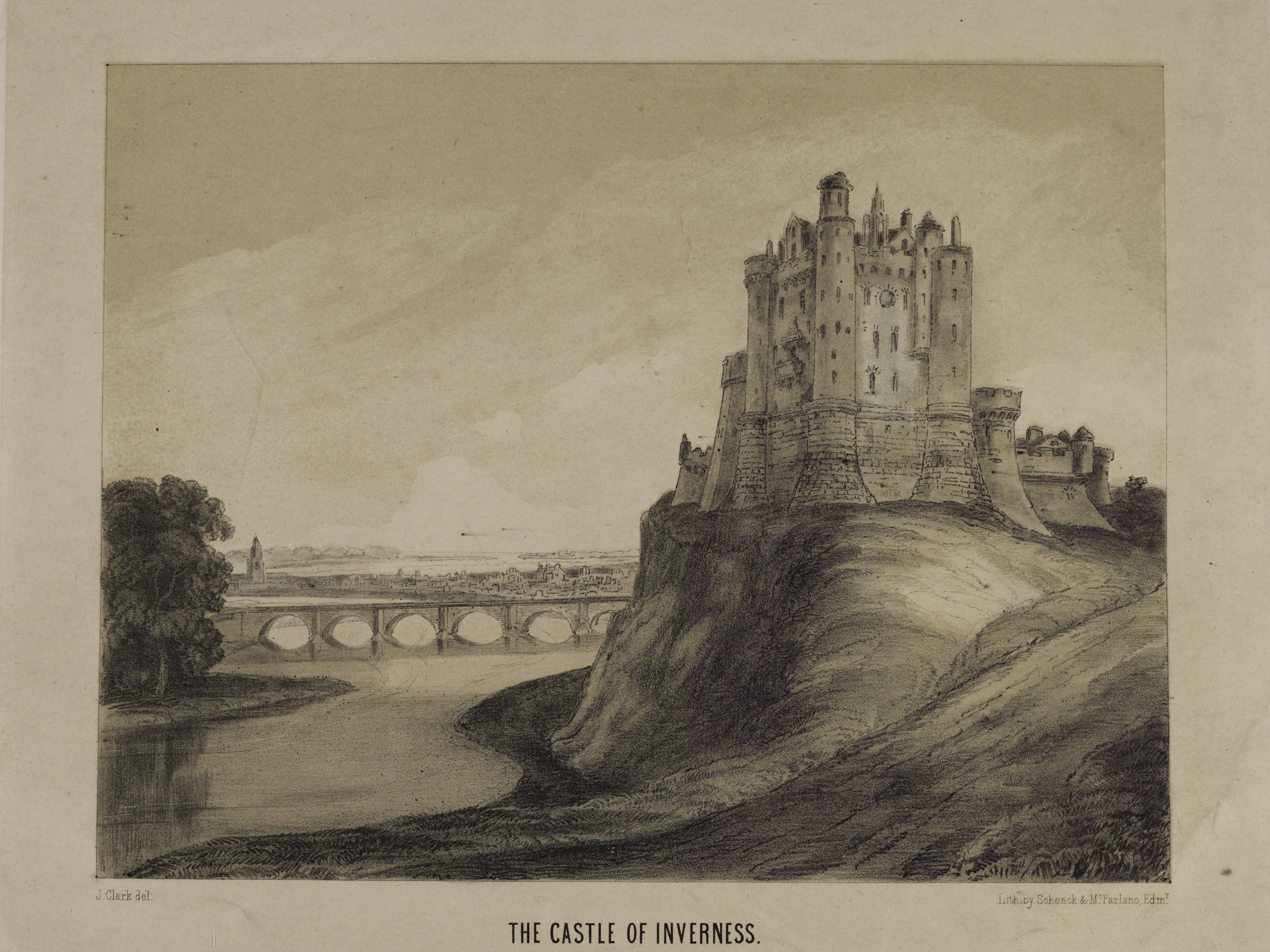|
Clan Macdonald Of Lochalsh
The Clan MacDonald of Lochalsh was a Scottish family and a branch of the larger Clan Donald. History The MacDonald of Lochalsh branch was founded by Celestine MacDonald (d.1476). Celestine MacDonald was the eldest son of Alexander of Islay, Earl of Ross, 3rd Lord of the Isles and 8th chief of Clan Donald. His mother was likely the daughter of Neil or Angus MacPhee of Glenpean in Lochaber, and Alexander may have married her via handfast. Celestine MacDonald of Lochalsh, with the support of the MacDonalds of Glengarry unsuccessfully claimed the right to succeed his father as Chief of Clan Donald and Lord of the Isles. Instead the right remained with his younger brother John of Islay, Earl of Ross, 4th Lord of the Isles, 9th chief of Clan Donald, the son of Elizabeth Seton. Celestine married Finvola Maclean, daughter of Lachlan Bronneach Maclean of Duart.''The Clan Maclean'' by a Seneachie, 1838, at p. 222. Celestine was succeeded as chief of Clan MacDonald of Lochalsh by his son A ... [...More Info...] [...Related Items...] OR: [Wikipedia] [Google] [Baidu] |
Clan Donald
Clan Donald, also known as Clan MacDonald or Clan McDonald ( ), is a Highland Scottish clan and one of the largest Scottish clans. Historically the chiefs of the Clan Donald held the title of Lord of the Isles until 1493 and two of those chiefs also held the title of Earl of Ross until 1476. The Lord Lyon King of Arms, the Scottish official with responsibility for regulating heraldry in that country, issuing new grants of coats of arms, and serving as the judge of the Court of the Lord Lyon, recognises under Scottish law the ''High Chief of Clan Donald''. There are also numerous branches to the Clan Donald and several of these have chiefs recognised by the Lord Lyon King of Arms; these are: Clan Macdonald of Sleat, Clan Macdonald of Clanranald, Clan MacDonald of Keppoch, Clan MacDonald of Glencoe, Clan MacDonell of Glengarry, and Clan MacAlister. There are also notable historic branches of Clan Donald without chiefs so-recognised, these are: the Clan MacDonald of Dunnyve ... [...More Info...] [...Related Items...] OR: [Wikipedia] [Google] [Baidu] |
Inverness
Inverness (; ; from the , meaning "Mouth of the River Ness") is a city in the Scottish Highlands, having been granted city status in 2000. It is the administrative centre for The Highland Council and is regarded as the capital of the Highlands. Historically it served as the county town of the Counties of Scotland, county of Inverness-shire. Inverness lies near two important battle sites: the 11th century, 11th-century battle of Blar Nam Feinne, Blàr nam Fèinne against Norway which took place on the Aird, and the 18th century Battle of Culloden which took place on Culloden, Highland#Battlefield of Culloden, Culloden Moor. It is the northernmost city in the United Kingdom and lies within the Great Glen (Gleann Mòr) at its northeastern extremity where the River Ness enters the Beauly Firth. With human settlement dating back to at least 5,800 BC, Inverness was an established self-governing settlement by the 6th century with the first Royal Charter being granted by Dabíd mac ... [...More Info...] [...Related Items...] OR: [Wikipedia] [Google] [Baidu] |
Clan MacDonald Of Dunnyveg
Clan MacDonald of Dunnyveg, also known as Clan Donald South, ''Clan Iain Mor, Clan MacDonald of Islay and Kintyre, MacDonalds of the Glens (Antrim)'' and sometimes referred to as ''MacDonnells'', is a Scottish clan and a branch of Clan Donald. The founder of the MacDonalds of Dunnyveg is Eòin Mòr Tànaiste Mac Dhòmhnaill, a son of John of Islay, Lord of the Isles, Iain Mic Dhòmhnaill (John of Islay, Lord of the Isles) and Margaret Stewart (daughter of Robert II), Margaret Stewart of Scotland, daughter of King Robert II of Scotland, Robert II. Members of the clan actually pronounced and spelled their name ''M'Connall'' due to the Gaelic pronunciation of the name ''Mac Domhnuill'' thus giving rise to the surname McConnell and its variants. While historically recognised as a clan by the Court of the Lord Lyon, it is now an armigerous clan as it no longer has a Scottish clan chief, chief. The last chief was Sir James MacDonald, 9th of the Clan MacDonald of Dunnyveg or Clan Donald ... [...More Info...] [...Related Items...] OR: [Wikipedia] [Google] [Baidu] |
Mingarry Castle
Mingary Castle (), also known as Mingarry Castle, is a castle situated southeast of the small village of Kilchoan in Lochaber, Scotland. Nestled on ridge of rock overlooking the sea, it was considered a strategically important site in terms of communication with overseas areas and as an entranceway to the Sound of Mull. Mingary is roughly hexagonal in shape with nine-foot-thick walls, thicker on the seaward side. The remains of the castle are protected as a listed building#Scotland, category A listed building. History Mingary Castle dates to either the thirteenth- or fourteenth century. It could have been originally constructed by either the Clan MacDougall, MacDougalls or the MacDonalds of Ardnamurchan (also known as the MacIains of Ardnamurchan). King James IV of Scotland used it as a stronghold for fighting off Clan Donald in the late 15th century. In March 1499 he gave John McEan or McIain the lands of Ardnamurchan and "Castle Mengarie" after he had captured John of Islay ... [...More Info...] [...Related Items...] OR: [Wikipedia] [Google] [Baidu] |
Clan Grant
Clan Grant is a Highland Scottish clan, with one main branch, Grant of Grant, and several cadet branches, such as Grant of Glenmoriston. History Origins The Chiefs of Clan Grant descended from Normans who arrived in Scotland during the medieval period, bearing the French name ''le Grand'' ('the tall', 'large'). The first Grants to appear in Scotland are recorded in the 13th century when they acquired the lands of Stratherrick. Sir Laurence le Grant, son of Gregory le Grant, was Sheriff of Inverness. Wars of Scottish Independence During the Wars of Scottish Independence, Clan Grant were supporters of William Wallace, and John and Randolph Grant were captured at the Battle of Dunbar (1296). The Clan Grant later supported Robert the Bruce in competition for the Scottish Crown. The victory of Robert the Bruce confirmed the Grants in their lands of Strathspey, where they became established Highland chiefs. The acquisition of Castle Grant occurred during the 14th century. Or ... [...More Info...] [...Related Items...] OR: [Wikipedia] [Google] [Baidu] |
Urquhart Castle
Urquhart Castle ( ; ) is a ruined castle that sits beside Loch Ness in the Scottish Highlands, Highlands of Scotland. The castle is on the A82 road, southwest of Inverness and east of Drumnadrochit. The present ruins date from the 13th to the 16th centuries, though built on the site of an early medieval fortification. Founded in the 13th century, Urquhart played a role in the Wars of Scottish Independence in the 14th century. It was subsequently held as a royal castle and was raided on several occasions by the MacDonald Earl of Ross, Earls of Ross. The castle was granted to the Clan Grant in 1509, though conflict with the MacDonalds continued. Despite a series of further raids the castle was strengthened, only to be largely abandoned by the middle of the 17th century. Urquhart was slighting, partially destroyed in 1692 to prevent its use by Jacobitism, Jacobite forces, and subsequently decayed. In the 20th century, it was placed in state care as a scheduled monument and open ... [...More Info...] [...Related Items...] OR: [Wikipedia] [Google] [Baidu] |
Clan Chisholm
Clan Chisholm ( ; , ) is a Highland Scottish clan. History Origins According to Alexander Mackenzie (historian), Alexander Mackenzie, the Clan Chisholm is of Normans, Norman and Anglo-Saxons, Saxon origin. Tradition stating that the Chisholms were a Norman family who arrived in England after the conquest of 1066., the original surname being De Chese to which the Saxon term "Holme" was added. According to the ''Collins Scottish Clan & Family Encyclopedia'' the Chisholm name was known in the Scottish Borders since the reign of Alexander III of Scotland, Alexander III. In early records the name is written as "de Cheseholme", eventually later becoming ''Chisholm (surname), Chisholm''. In Scotland the earliest recorded person of the family is on the Ragman Rolls as "Richard de Chisholm del Counte de Rokesburgh", referring to the Clan Chisholm's seat in Roxburghshire. One of the earliest recorded members of the family was John de Chesehelme, who in 1254 was mentioned in a bull of Pope ... [...More Info...] [...Related Items...] OR: [Wikipedia] [Google] [Baidu] |
Battle Of Flodden
The Battle of Flodden, Flodden Field, or occasionally Branxton or Brainston Moor was fought on 9 September 1513 during the War of the League of Cambrai between the Kingdom of England and the Kingdom of Scotland and resulted in an English victory. The battle was fought near Branxton, Northumberland, Branxton, in the county of Northumberland, in northern England, between an invading Scots army under King James IV of Scotland, James IV and an English army commanded by the Thomas Howard, 2nd Duke of Norfolk, Earl of Surrey. In terms of troop numbers, it was the largest battle ever fought between the two kingdoms.''The Seventy Greatest Battles of All Time''. Published by Thames & Hudson Ltd. 2005. Edited by Jeremy Black. pp. 95–97. . After besieging and capturing several English border castles, James encamped his invading army on a commanding hilltop position at Flodden, awaited the English force that had been sent against him and declined a challenge to fight in an open field. Surr ... [...More Info...] [...Related Items...] OR: [Wikipedia] [Google] [Baidu] |
Clan MacDonald Of Ardnamurchan
The MacDonalds of Ardnamurchan, also known as MacIain of Ardnamurchan, or Clan MacIan, were a Scottish family and a branch of the larger Clan Donald. History Origins of the Clan The founder of the Macdonalds of Ardnamurchan was Iain Sprangach MacDonald (d.1340), the third son of Angus Mor MacDonald (d.1292), 4th chief of Clan Donald. Iain is the Scottish Gaelic for the Christian name John. The surname MacIain therefore means ''son of John''. Iain Sprangach MacDonald was also known as ''John the Bold''. His brother, Angus Og Macdonald, Lord of the Isles, was a great ally of King Robert the Bruce. Ian's early affiliations, like those of his family, were serving Edward I (until Robert Bruce became King of Scots). His grant of Ardnamurchan likely came from his brother, Angus Og, as it was one of the lands granted to Angus Og by Robert I. The MacDonalds of Ardnamurchan became known as the MacIains. 15th century Alexander MacDonald, the third chief of the MacIains, is believed t ... [...More Info...] [...Related Items...] OR: [Wikipedia] [Google] [Baidu] |
Battle Of Drumchatt (1497)
The Battle of Drumchatt was a Scottish clan battle that took place in 1497. The Clan Mackenzie and possibly the Clan Munro defeated the Clan MacDonald of Lochalsh at Drumchatt (Druimchat) or "the Cat's Back", a ridge to the southeast of Strathpeffer. Background In 1493, the powerful chief of the Clan Donald, Sir John of Islay, lost his right to the title of Lord of the Isles when it was revoked by James IV of Scotland, having also already forfeited the title of Earl of Ross in 1475. As a result, many of the western and other northern clans, particularly the Clan MacLeod of Harris and Dunvegan, felt that they no longer had to pledge allegiance to the MacDonalds. In 1495, King James assembled an army at Glasgow. Then, on 18 May, many of the highland chiefs made their submissions to him, including those of the Clan Mackenzie and Clan Munro. This may explain the unusual alliance between the Munros and Mackenzies who were rival clans. However, while the presence of the Clan Munr ... [...More Info...] [...Related Items...] OR: [Wikipedia] [Google] [Baidu] |
Donald Gregory
Donald Gregory (1803–1836) was a Scottish historian and antiquarian, who published a valuable history of the Western Highlands and Isles of Scotland. Origins Gregory was a younger son of Dr James Gregory (1753–1821), a leading Scottish physician, by his second wife Isabella Macleod (1772–1847), and was one of no fewer than eleven children. His twin brother, William Gregory, was a notable chemist. His grandfather, John Gregory (1724–1773), was a notable physician and moralist and his grandfather’s grandfather, James Gregory (1638–1675) was a mathematician and astronomer. Gregory was accordingly born into Scottish academic purple. Donald lived at the family home of 10 Ainslie Place in the Moray Estate in Edinburgh for all of his later life. Career Gregory became joint secretary to the Society of Antiquaries of Scotland in 1828 and sole secretary in 1830. He was also secretary to the Iona Club (devoted to the history, antiquities and early literature of the Scotti ... [...More Info...] [...Related Items...] OR: [Wikipedia] [Google] [Baidu] |
Inverness Castle
Inverness Castle () sits on a cliff overlooking the River Ness in Inverness, Scotland. A succession of castles have stood on this site since 1057, although the present structure dates from 1836. The present structure is a Category A listed building. History Medieval history A succession of castles have stood on this site since 1057. The castle is said to have been built by Malcolm III of Scotland (Máel Coluim mac Donnchada). The first chief of Clan Mackintosh, Shaw Macduff is said to have been appointed constable of Inverness Castle by Malcolm IV in 1163 after assisting the king in putting down a rebellion in Moray. The first Inverness Castle was partially destroyed by King Robert I of Scotland in 1307 who razed its battlements to the ground. In 1428, James I, in his effort to bring the Highlanders to heel, summoned fifty clan chiefs to a parley at Inverness Castle. However, "where the Parliament was at the time sitting, they were one by one by order of the King arrested, i ... [...More Info...] [...Related Items...] OR: [Wikipedia] [Google] [Baidu] |








